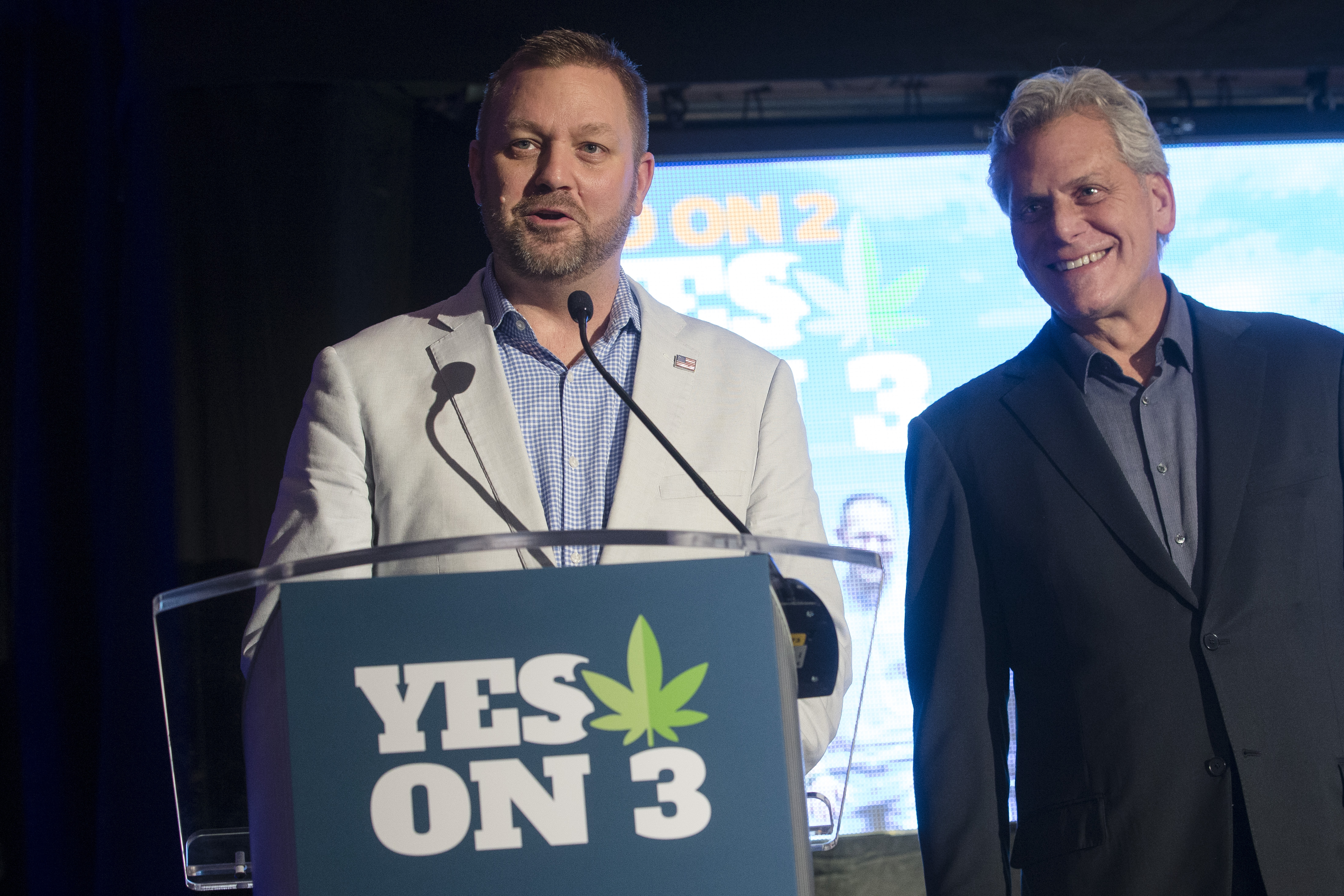
By: Michael Williams | Student Columnist

Over the last two weeks, four major developments occurred in the battle for marijuana legalization.
First, Canada elected new Prime Minister Justin Trudeau on Nov. 4. He promises to make marijuana legal in Canada. On that same day, Mexico’s Supreme Court declared that individuals should have the right to grow and distribute marijuana. But even though, this only applies to the cannabis club in Mexico that brought the case to court, the ruling could pave way for legalization. In the U.S., Senator and presidential candidate Bernie Sanders introduced a proposal to remove cannabis from a list of controlled substances.
Yet not all was positive this week as Ohio voted against legalizing marijuana.
So far, Colorado, Washington, Alaska, Oregon and Washington D.C. have legalized marijuana for adult recreational use. While the Ohio voters had every right to strike down the proposition, I strongly disagree with their decision. Legalizing marijuana has various economic, legal and safety benefits.
The first and most obvious benefit of legal pot is tax revenue. According to Time, in the 2014-15 fiscal year, Colorado collected almost $70 million off of taxes on marijuana, compared to $42 million off of taxes on alcohol.
The second benefit is with prison systems. According to the International Business Times, in 2014, 700,993 people were arrested for marijuana. From 2001 to 2010, 88 percent of the drug-related arrests were just for simply having marijuana. Not to the mention the fact that in 2010, 52 percent of drug arrests were related to weed.
All these arrests have contributed to the fact that America has more prisoners than any other country on earth — which includes China, a dictatorship that has four times as many people. According to CBS News, it costs an average of $31,307 per year to house an inmate. With the money saved from prisons and the tax revenue, we could put more money into drug education and rehabilitation, which is important because America’s prisons are already overcrowded.
The pros of legal marijuana don’t stop there. According to Fusion.net, about 30 percent of the Mexican cartel’s profit comes from marijuana, and the United States is the cartel’s greatest customer. The Daily Caller also provides insight into the impact on the cartels. In 2014, U.S. border patrol agents seized 1.9 million pounds of marijuana compared to 2.5 million in 2011. Note that this is after Colorado and Washington legalized it in 2012.
“Two or three years ago, a kilogram [2.2 pounds] of marijuana was worth $60 to $90,” Nabor, a 24-year-old pot grower in Sinaloa, Mexico, told NPR. “But now they’re paying us $30 to $40 a kilo. It’s a big difference. If the U.S. continues to legalize pot, they’ll run us into the ground.”
There still are some that oppose legalization out of fear of marijuana. However, many of these concerns are disproven by hard evidence.
Marijuana is far from the miracle drug that many potheads make it out to be, but it is no worse than any other legalized substance and does have some good effects. According to the American Cancer Society, marijuana has been used in medicine for centuries.
The biggest opposition to legalization is that marijuana is a gateway drug. This is not necessarily the case.
According to the National Institute on Drug Abuse, the hard drug abuse trends in Colorado have been mixed since Marijuana legalization. If it was a gateway drug, hard drug use would increase across the board.
There are two reasons why people think it is a gateway drug: one, illegal marijuana is unregulated and can be laced with addicting hard drugs to hook buyers, and two, drug dealers will be pushing other drugs onto people buying pot while they do so.
The long term health effects of marijuana are still being debated. It is hard to tell since legalization is relatively new and the health effects being studied would be of unregulated marijuana. As far as short term health effects go, legal substances like alcohol, tobacco and prescription drugs kill more people than weed, not to mention the fact that you can’t overdose on marijuana according to the National Institute on Drug Abuse. For those with addictions to these more dangerous substances, marijuana can be a safer alternative for doctors to recommend.
As more and more is discovered about marijuana every year, the percentage of Americans in favor of legalizing it keeps increasing. The experiments in Colorado and Washington (and now in Alaska, Oregon and D.C.) have been successful. Marijuana’s economic and social benefits are too great to ignore.
So, let marijuana prohibition go up in smoke.





Yes, Ohio voted against legalizing pot. But, Issue 3, the Nov. 3 ballot item that would have legalized it, was NOT written as a legalization item; it was specifically written so as to give a monopoly to a small number of pot producers. So, many people in favor of legalizing pot voted against it because they did not want to create what would basically be a state-established monopoly. There is a separate grassroots group trying to get pot on the OH ballot WITHOUT the monopolies.
So, while Mr. Williams may fairly voice his disagreement with the electorate of Ohio, framing Ohio’s vote against Issue 3 as a legalization issue rather than a monopoly-establishing issue, which the language of Issue 3 was clearly written out to communicate, misrepresents the electoral decision that Ohio residents have made regarding our future. Mr. Williams, as a consequence, does not seem to have done his homework because he did not mention the monopoly issue once. But, perhaps in stating his disagreement while ignoring the monopoly issue, Mr. Williams did know of the monopoly issue and would like to suggest that we should allow a few very wealthy and politically powerful individuals to be further enriched at the expense of others, including the poor, especially given that monopolies in general (like the cable monopolies) are well-known to unreasonably drive up prices and, thereby, protect Ohio’s underground (read: “illegal” – which would be the case even if Issue 3 had passed) drug market.
Ohio, I think, will legalize pot through the legalization petition now circulating, a petition supported by GRASSROOTS interests rather than BIG MONEYED interests, which Mr. Williams also seems to have failed to mention in his rush to ignore what Ohio’s overturning of Issue 3 was really about.